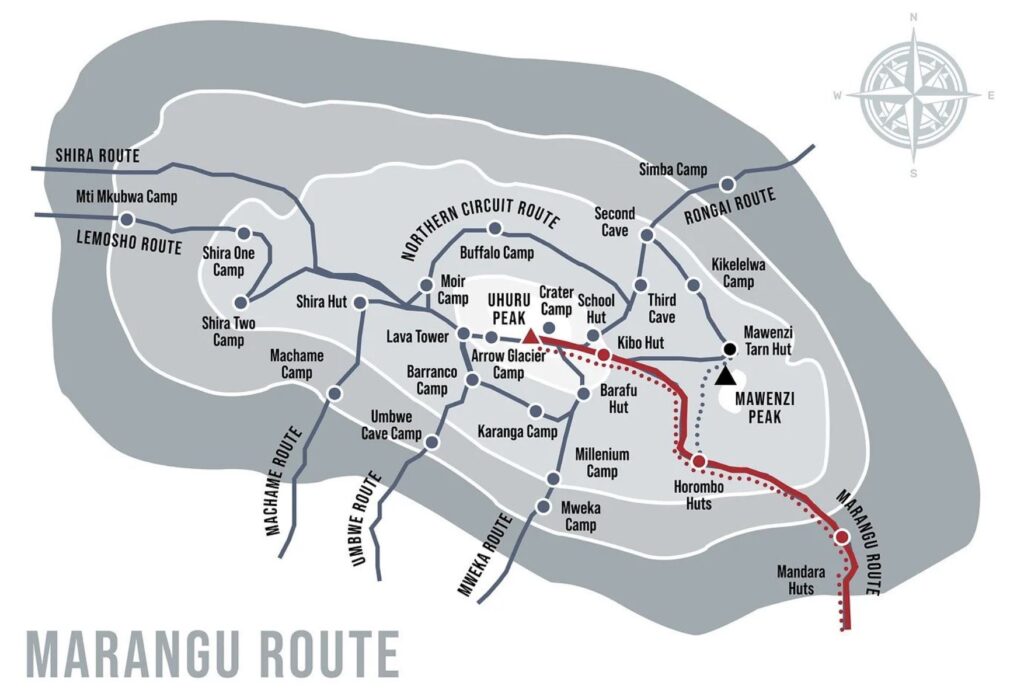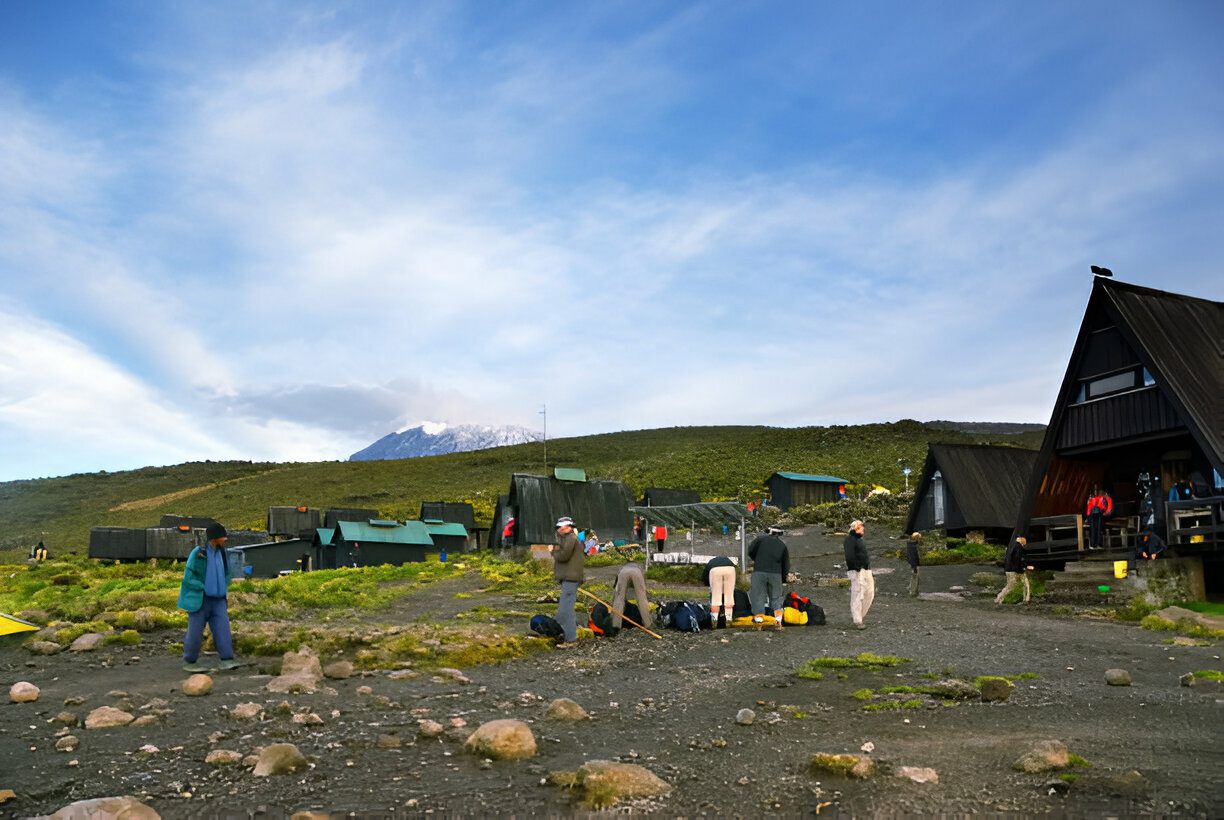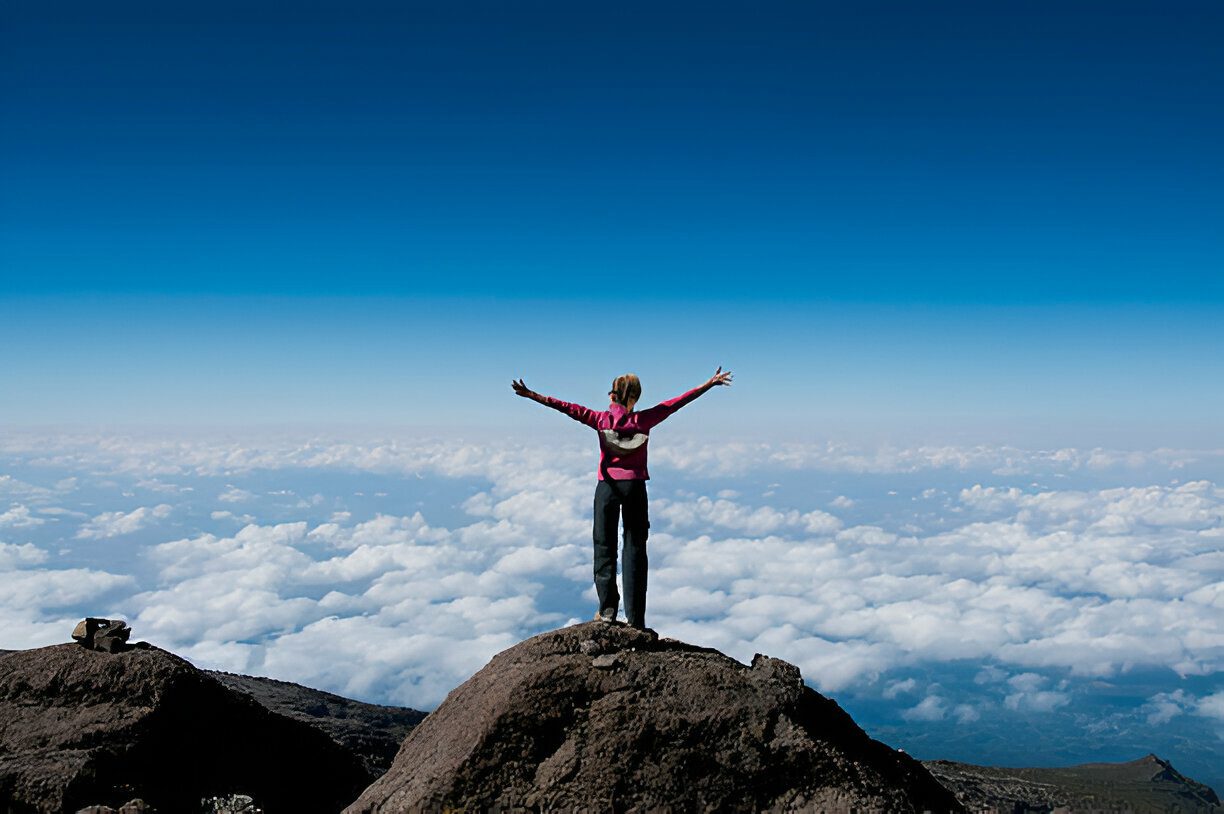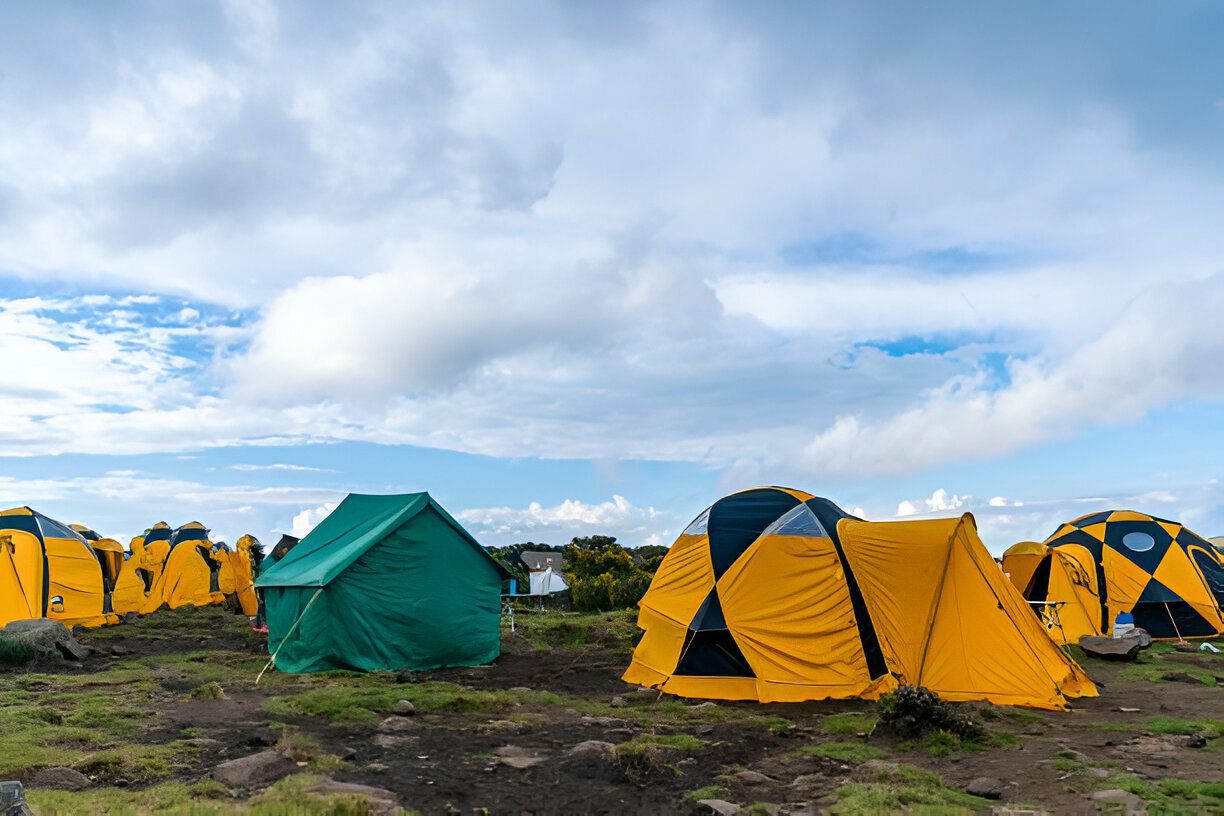KILIMANJARO MARANGU ROUTE
The Marangu Route, also known as the "Coca-Cola Route," is the oldest and most well-established trekking route on Mount Kilimanjaro. It offers a classic Kilimanjaro climbing experience with sweeping views and a wonderful hiking adventure all the way to the summit of Uhuru Peak. However, it has unique aspects that set it apart from other routes, giving it a character and feeling that is entirely its own.
One interesting aspect of the Marangu Route is that it is the only route up Mount Kilimanjaro that doesn't allow camping, so trekkers stay in permanent huts instead. These dormitory-style shelters provide extra protection from the wind and rain, making it popular during the rainy season in April and May. There are 60 bunk beds each at Mandara and Kibo Huts, and 120 bunk beds at Horombo Hut.
Trakkers sleep in bunk beds equipped with a simple mattress and pillow, and can purchase an array of candy bars, bottled water, and soft drinks. The Marangu Route offers a slow, steady climb to each of the daily camps, making it the easiest trekking route on Kilimanjaro. However, the approach to the final camp can be physically demanding with roughly 1000 meters of vertical gain on that day alone.
The Marangu Route is one of the shortest treks to the summit, requiring just five days to reach Uhuru Peak. However, it doesn't provide as much opportunity to acclimatize to the altitude, leading to the highest failure rate of any of the routes up Mount Kilimanjaro. Additionally, the Marangu Route is the only route that uses the same path going up and coming back down, meaning trekkers will experience the same sites going up and down.
Below, you will find a comprehensive 5 night/6 day climb up Kilimanjaro via the Marangu Route. If you would like to shorten your route to 5 days, skip the night of the Acclimatization Day and continue walking straight from the Horombo Huts to the Kibo Huts in one day.
Day 1: Mandara Huts
Once you have finished breakfast, it is time to leave Arusha and head towards the southeast entrance of Kilimanjaro National Park, better known as Marangu Gate. Upon arriving at Marangu Gate, you will be given the time to check-in and register. This is where you begin your ascent of Kilimanjaro. The first leg of this route takes you through the woods and the rainforest where you will be able to take in the eucalyptus trees and various species of birds. If you are lucky, you may just spot a Colobus monkey or two – keep an eye out for black or white fur! Make sure you have the appropriate equipment and footwear because the low altitudes can produce wet, muddy soil.
Hiking: 5-7 hours
Overnight Altitude: ~8,858
Habitat: Rainfores
Day 2: Mandara Huts – Horombo Huts
To start off day 2, you will explore the final stretch of woodland as the massive stretch of moorland begins to open up right in front of your eyes. On your walk, you can appreciate the jagged peaks of Mawenzi that ascend up towards the skies of Africa. It is common for people to experience the onset of altitude sickness at these heights. It is important to pay attention to how you feel and communicate with your guide at the first and slightest indication of illness. After reaching the Horombo Huts, you will have time to unpack and experience the view of Kibo before dinner.
Hiking: 5-7 hours
Overnight Altitude: ~12,205
Habitat: Heath/Moorland
Day 3 Acclimatization Day
You will spend an extra day at the Horombo Huts to allow your body to acclimate to the increasingly high altitude. You must stay at camp and relax if you are showing any signs of illness or are feeling especially tired. However, if you feel well-acclimated to the altitude, then you are free to walk up to Mawenzi Hut and admire the incredible view of Kibo and Mawenzi. Keep a steady pace and you walk the route and enjoy the magnificent landscape. Otherwise, you can take a journey to the remarkable Zebra Rocks. This requires a climb of 310 metres.
Hiking: 1-2 hours
Overnight Altitude: ~14,400
Habitat: Heath/Moorland
Day 4: Horombo Huts – Kibo Huts
On day 4, you will walk through varied and strikingly picturesque landscapes. To begin, you will continue across the heath as it slowly turns into the parched, desolate highlands between Mawenzi and Kibo. The scenery here is littered with huge and small volcanic rocks, acting as a testament to the volcanic activity of years past. The final stretch to the Kibo Huts is very steep and physically challenging.
Once you arrive at the Kibo Huts, it is time to organize your equipment and warm clothes for tomorrow’s journey to the peak. To prevent freezing, keep any water your plan on bringing in a thermos. Get to bed early, as the next day’s trek requires a full night’s sleep worth of energy. You are getting ready to take on Kilimanjaro’s most ultimate challenge!
Hiking: 5-7 Hours
Overnight Altitude: ~15,430
Habitat: Alpine Desert
Day 5 Kibo Huts – Gilman’s Point – Uhuru Peak – Horombo Huts
As you awake around midnight, there is just enough time for a small meal before you begin your nightly hike. Many hikers consider the difficult terrain, scattered with loose rocks, to be the most difficult part of the climb. The goal is to reach Gilman’s Point by dawn. This is to make sure that you can make it to Uhuru, the highest point of Kibo, shortly after sunrise. There will be a quick stop at Gilman’s Point to experience the glorious view. Afterward, you will continue along the edge of the crater to Uhuru – this is the last part of the ascent and features a steady incline.
Depending on when you take your journey, you may face snow on the final stretch of the path to the Uhuru Peak – the highest point in Africa and the very top of Kilimanjaro. As you reach the peak, an altitude of 5,895, you can congratulate yourself as you experience the astounding view and get a picture in front of the Uhuru Peak Sign.
Now it is time to start back towards the Kibo Huts, you will find that this part goes by incredibly quickly. At the Kibo Huts, you will stop to relax and enjoy a much-needed lunch, before moving along to the Horombo Huts, where you will enjoy a well-deserved full night’s rest.
Hiking: 4-5 Hours
Overnight Altitude: ~12,205
Day 6: Horombo Huts – Marangu Gate – Arusha
As we make the final descent through the rainforest to the Marangu Gate, we will have lunch and say farewell to our mountain crew. Afterward, we will leave Mount Kilimanjaro National Park and drive back to Arusha for a much-need shower and a commemorative dinner!
Hiking: 5-7 Hours
Overnight Altitude: ~1,843
Habitat: Alpine Desert
Discover
The park can be accessed by road or flight via Kilimanjaro International Airport – about 45km to the west. The Park Headquarters and one of the ascending gates are at Marangu, about 41Km from Moshi town and 86km from Kilimanjaro International Airport. The other seven gates of Rongai, Machame, Londorosi, Lemosho, Kilema, Mweka and Umbwe are located around the mountain base and can be reached by road.
FAQ
Marangu Route Frequently asked questions
This route is attempted by many novice hikers every year as it offers comfortable hut accommodations, as opposed to other routes that require you to sleep in mountain tents. Many people attest that this route is less difficult compared to other hikes to the top of Kilimanjaro.
Marangu route common misconception for trekkers is perceive a 5-day hike to be easier than a 6-day hike. However, the 5-day options can be very difficult as it does not allow for much time to acclimate to the altitude.
The 6-day option is much easier, but a good level of fitness is still required.
As it is one of the shortest routes on the mountain, the Marangu Route has the lowest summit success rates. This is mainly because of the unprofessional local tour guides who take groups up the mountain on the shorter 5-day hike. Because of this, the 5-day average success rate is 50%! We advise our hikers with this in mind, so we only take the 6-day option which increases the success rate to over 90%!
The Marangu route ascends through the rainforest, moorlands, and alpine areas before ending in the glacial zone. This trek is very beautiful and is the only route that allows you to descend the same way you ascended.
Between July and September is the best time to climb Kilimanjaro. The weather is the most stable during this period and encountering rain is less likely. Since it is close to the equator, it is possible to climb the mountain at any time during the year. Be cautious, April and May are the wettest months, so this period is best avoided.
Welcome to Climb Mount Kilimanjaro

Joseph Cosmas
- Travel Expert
Connect with our Travel Expert for personalized guidance and unforgettable experiences.





